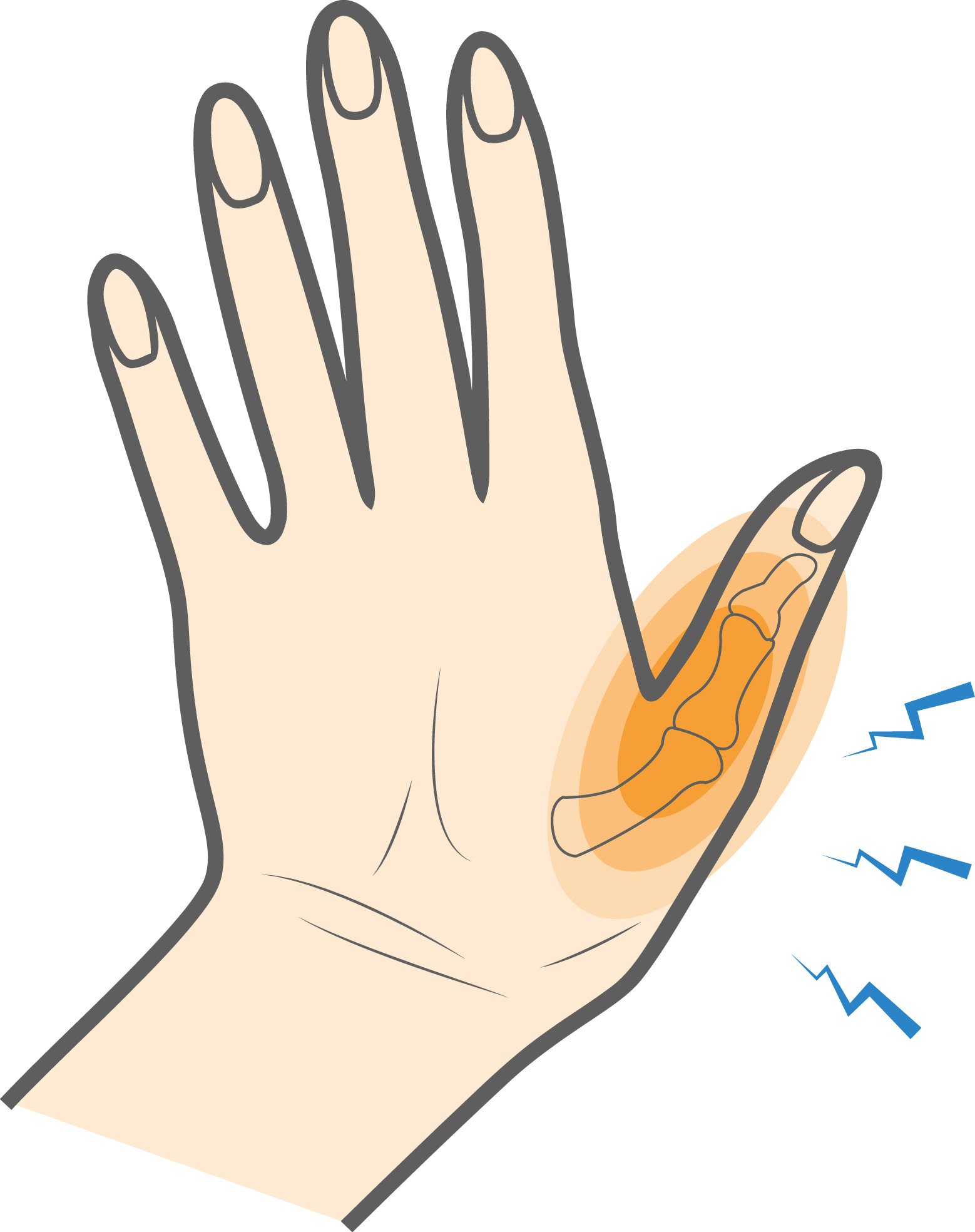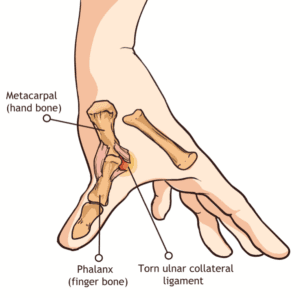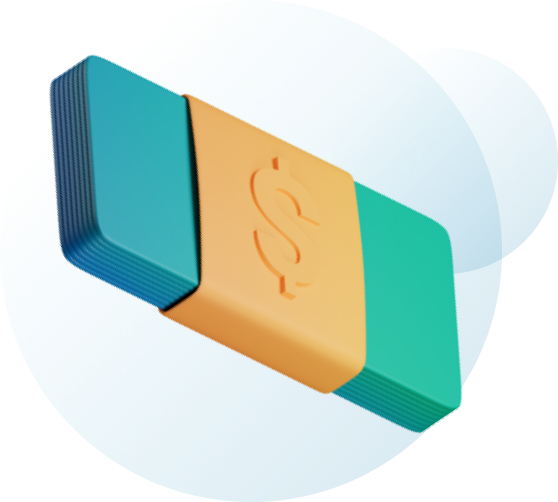Thumb Sprain (UCL Injury of Thumb) Symptoms & Treatment
A thumb Ulnar Collateral Ligament (UCL) injury (skier's/gamekeeper's thumb), occurs when the ligament supporting the thumb’s base is stretched or torn. It often results from a fall or forceful thumb movement. Symptoms include pain, swelling, and weakness when gripping. Treatment involves rest, splinting, and sometimes surgery for severe tears.
Start with our quick Symptom Assessment or connect directly with an Upswing Coach today.
Request an AppointmentReady to take the next step?
Start your symptom assessment or connect with a coach instantly.
Find Relief TodayOverview
Sprained thumbs are a common injury, particularly among athletes who depend on grip and hand strength. They occur when the ulnar collateral ligament (UCL), a tough, flexible tissue connecting the thumb bones, is overstretched or torn.
Often called “skier’s thumb,” it typically happens when the thumb is forcefully bent away from the hand, such as during a fall while holding a ski pole. The injury can cause pain, swelling, and weakness, making it difficult to perform movements like gripping, pinching, or holding objects in sports and daily activities.

What causes Thumb Sprain (Ulnar Collateral Ligament (UCL) Injury of Thumb)?
A thumb UCL injury (skier’s/gamekeeper’s thumb) typically occurs when the thumb is forcefully bent away from the palm, stretching or tearing the ligament stabilizing the joint. This often happens during a fall onto an outstretched hand or when the thumb absorbs sudden impact or twisting force.
- How the Injury Occurs: The ulnar collateral ligament can tear partially or completely when the thumb is pulled outward beyond its normal range. This may result from gripping an object tightly during a fall, sudden collisions, or direct impact to the thumb during play.
- Common Everyday Causes: Thumb sprains can also occur during daily activities, such as falling on an outstretched hand, lifting heavy objects awkwardly, or catching a slipping item. Accidental thumb bending while doing household chores, gardening, or even opening jars can cause mild UCL rupture or strain.
Thumb UCL Injuries Are Common in These Sports:
- Skiing: Falling while holding a ski pole can twist the thumb away from the hand, causing “skier’s thumb.”
- Snowboarding: Landing awkwardly on an open hand can overstretch the ligament at the thumb’s base.
- Basketball: Catching or deflecting a fast-moving ball may suddenly jam or bend the thumb.
- Football: Tackling or grabbing another player can force the thumb into an unnatural position.
- Baseball: Swinging a bat or catching a ball incorrectly can strain the ligament and cause pain.

Symptoms
Pain is the most common symptom of a thumb UCL injury, and its intensity often depends on the severity of the ligament damage. In mild cases, discomfort may occur only during movement, while more serious tears can cause constant pain and instability.
Common symptoms include:
- Pain that worsens with movement: Discomfort increases when bending, gripping, or pinching with the thumb.
- Bruising, swelling, and tenderness: These typically develop at the base of the thumb near the joint.
- Thumb instability: The thumb may feel loose, weak, or unable to maintain a firm grip.
- Weakness when grasping or squeezing: Difficulty performing tasks that require pressure between the thumb and index finger.
- Lump or swelling on the inside of the thumb: A noticeable bump may form due to ligament injury or tissue swelling.
When to see a doctor
If you injure your thumb and experience pain, swelling, or instability, even if symptoms seem mild, it’s important to see a doctor. Early evaluation and treatment help prevent the injury from worsening or leading to long-term thumb pinch weakness. If surgery is indicatedit is important to do it within 2-3 weeks of the injury.
During your visit, your doctor will ask about how the injury occurred, your medical history, and your physical activity level. An examination will follow, where your doctor will gently move your thumb in different directions to test the joint’s stability and determine whether the UCL is stretched or completely torn. Your doctor may also order X-rays or other imaging tests to confirm the diagnosis and rule out bone fractures.
Non-operative treatment
Treatment of a thumb UCL injury will depend on the severity of the injury. Mild and moderate sprains can be treated conservatively without surgery. These treatments include:
- Rest: Avoid activities, such as racket sports, that involve heavy hand use and gripping movements.
- Ice: Apply cold packs to reduce swelling.
- Compression: A compression bandage may be worn to reduce swelling.
- Medication: Nonsteroidal anti-inflammatory (NSAID) medication like ibuprofen can help to relieve pain.
- Cast: For moderate sprains, your doctor may recommend a bandage, splint, or cast to keep your thumb joint immobilized until it can heal.
- Physical Therapy: Gentle exercises can help reduce stiffness and increase mobility in your thumb joint.
Try these exercises to help address your condition:
Below is a PDF of the exercise program.
Surgical Treatment
In severe thumb sprains, such as a complete tear of the ulnar collateral ligament (UCL), conservative treatment may not fully restore thumb strength or joint stability. When this happens, your doctor may recommend surgery to reattach the torn ligament to the bone and repair any associated fractures. After surgery, the thumb is typically immobilized in a cast or splint for several weeks to allow proper healing and prevent re-injury.
Recovery
Most athletes regain whole thumb movement and strength with timely diagnosis and appropriate treatment. Your doctor or physical therapist will guide you through rehabilitation exercises to restore flexibility, coordination, and grip power.
Recovery time varies depending on the severity of the injury and surgical repair. However, when left untreated, a thumb UCL injury can result in chronic instability, arthritis, persistent weakness, and long-term difficulty performing gripping or pinching movements.
Dr. Jay Kimmel is a board-certified orthopedic surgeon specializing in sports medicine, arthroscopic surgery, and shoulder and knee disorders. He completed his orthopedic training at New York-Presbyterian/Columbia University Medical Center and a Sports Medicine Fellowship at Temple University.
Dr. Kimmel previously served as the Director of the Connecticut Sports Medicine Institute at Saint Francis Hospital and has held faculty appointments as Clinical Assistant Professor in the Departments of Orthopedics and Family Medicine at the University of Connecticut. He has extensive experience caring for athletes as a team physician for high school and collegiate programs and continues to teach in the athletic training departments at Westfield State University and Springfield College.
Find the Support You Need — Right When You Need It
Whether you’re managing pain for the first time, need ongoing guidance, or require expert medical care, we’re here to help you every step of the way.
ORTHO DIRECT
Video visit with an orthopedic doctor for advice and a care plan.
$30
/MonthMRI DIRECT
Fast, affordable MRI with orthopedic review. No insurance required.
$499
/MonthFrequently Asked Questions
How soon after a thumb UCL injury should treatment begin?
Ideally, treatment should begin immediately after the injury. Early identification and intervention help prevent long-term instability and complications like arthritis.
What are the risks of delaying treatment for skier’s thumb?
Delaying treatment can lead to chronic thumb joint instability, reduced grip strength, and arthritis.
Can I still play sports with a thumb UCL injury?
If you’ve been diagnosed with a UCL sprain, continuing to play sports, especially those requiring grip, like tennis, baseball, or skiing, can worsen the injury. Resting the thumb and following your doctor’s treatment plan is best. Returning to sports too soon can risk further damage, delay healing, or lead to long-term instability or weakness in the thumb.
What happens if a sprained thumb is left untreated?
Ignoring a thumb UCL injury, even a mild one, can lead to chronic joint instability, long-term weakness, and even arthritis in the thumb joint. A sprained thumb that doesn’t heal properly can limit your ability to grip, pinch, or perform daily tasks. That’s why early diagnosis and appropriate treatment are crucial, even if the pain initially seems manageable.

